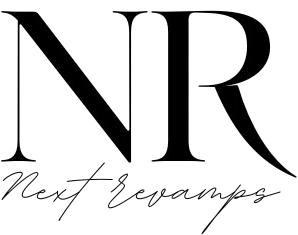Introduction
Have you stumbled upon the term “Laaster” online and found yourself intrigued yet confused? You’re not alone. In the digital age, new terms can emerge from typos, branding experiments, or cultural inside jokes, quickly gaining a life of their own. This comprehensive guide is your definitive resource for understanding Laaster. We’ll dissect its potential meanings, explore its origins, and provide practical examples of how this unique term is being used—or could be used—in technology, branding, and beyond.
What is LaasterLaaster? (Definition & Scope)
At its core, LaasterLaaster is a neologism—a newly coined word or expression. It lacks a formal entry in major dictionaries like the Oxford English Dictionary, which means its definition is fluid and context-dependent.
The term appears to be a deliberate duplication of the word “laaster.” This repetition is significant and can be interpreted in several ways:
-
An Emphatic Form of “Laaster”: It could serve to intensify the original word, similar to how “big big” in some dialects means “very big.” If “laaster” implies something that lasts, “LaasterLaaster” might suggest ultimate durability or permanence.
-
A Distinct Brand or Product Name: The repetition makes it highly memorable and trademark-friendly. It could be the name of a new tech startup, a software framework, or a consumer product line.
-
A Slang or Niche Technical Concept: In specific online communities or technical fields, it may have developed a specialized meaning, perhaps referring to a recursive process or a redundant system designed for extra resilience.
Early online mentions are sparse and often appear in speculative forums or domain name listings, suggesting it is a term on the cusp of wider recognition.
Origins & Background
To understand LaasterLaaster, we must first look at its root: “laaster.” This word is not standard English but is closely related to existing terms.
-
Linguistic Context: “Laaster” is likely a variant or misspelling of the German or Dutch word “Laster,” which translates to “vice” or “fault.” However, a more relevant connection is to the English word “last,” as in to endure. In some dialects or creative spellings, “laaster” could be an intentional alteration meaning “one that lasts.”
-
Connection to “Last”: The verb “to last” comes from the Old English lǣstan, meaning “to continue, endure.” By duplicating “laaster,” the term LaasterLaaster conceptually doubles down on this idea of endurance and longevity.
-
Dictionary Contrast: For clarity, the nearest standard English word is “laster,” which is a noun referring to a tool or person that makes something last (e.g., a shoe last). LaasterLaaster clearly distinguishes itself from this through its unique spelling and structure.
Applications & Meanings in Different Contexts
The ambiguity of LaasterLaaster is its greatest strength, allowing it to be applied across various domains.
Technology/Framework Angle
If we treat LaasterLaaster as a tech concept, it could be envisioned as a framework for building highly resilient and sustainable systems.
-
How it Works: Imagine a distributed computing architecture where every component has a redundant, mirrored counterpart—a “last-er” for every “last.” The system is designed not just to avoid failure, but to be inherently “un-failable.”
-
Use Cases: Ideal for critical infrastructure, financial transaction systems, or long-term data archiving where data integrity is paramount.
-
Benefits: Ultimate fault tolerance, data permanence, and future-proofing.
-
Limitations: Potential for increased complexity and resource consumption.
Branding/Marketing Angle
From a branding perspective, LaasterLaaster is a goldmine. According to naming principles from authorities like Naming Matters, a successful brand name should be memorable, distinctive, and evocative.
-
Why it Works: The rhythmic repetition makes it catchy and easy to remember. It suggests quality, durability, and innovation.
-
Domain & Trademark: A quick check shows that domain names like
laasterlaaster.comare likely available, presenting a significant first-mover advantage. A thorough trademark search would be essential before adoption. -
SEO Potential: As a unique term, ranking for “LaasterLaaster” would be relatively straightforward compared to highly competitive keywords, allowing a brand to own its digital space entirely.
Philosophical/Metaphorical Angle
Symbolically, LaasterLaaster can represent the concept of recursion, self-reliance, or the pursuit of perfection.
-
Innovation: It embodies the idea of building upon a foundation of durability to create something even more enduring.
-
Resilience: It can be a metaphor for personal or organizational resilience—the ability to not just recover from setbacks but to build a system that anticipates and neutralizes them.
Case Studies & Examples
While LaasterLaaster is not yet a household name, we can construct hypothetical scenarios to illustrate its potential.
-
Case Study 1: The Sustainable Apparel Brand
-
Scenario: A new clothing company named LaasterLaaster launches, focusing on ultra-durable, repairable garments.
-
Application: The name immediately communicates a value proposition of longevity, directly challenging “fast fashion.” Their tagline could be: “LaasterLaaster: Built to Outlast.”
-
-
Case Study 2: The Software Framework
-
Scenario: An open-source project adopts the name LaasterLaaster for a new database protocol.
-
Application: The protocol ensures that once data is written, it is replicated across multiple, independent networks, making it virtually immutable. It becomes known as the LaasterLaaster standard for data integrity.
-
LaasterLaaster vs Similar Terms
Clarity is key. This table highlights the distinct differences between LaasterLaaster and similar-sounding words.
| Word | Meaning | Usage | Key Difference |
|---|---|---|---|
| LaasterLaaster | A neologism implying extreme durability, resilience, or a specific brand/framework. | Emerging use in tech, branding, and conceptual discussions. | A unique, duplicated term with an emphasis on recursion or intensity. |
| Laaster | A likely variant or misspelling of “laster,” implying “one that lasts.” | Informal, potential brand root word. | The singular, non-emphatic root of LaasterLaaster. |
| Laster | 1. A tool for shaping shoes. 2. A person or thing that endures. | Standard English, but relatively uncommon. | A recognized English word with a specific, non-conceptual meaning. |
| Plaster | A building material for coating walls. | Common English, construction/medical contexts. | A completely different word; a potential source of phonetic confusion. |
| Raster | A rectangular pattern of parallel scanning lines (e.g., in images). | Technical term in computer graphics. | A well-defined technical term with no conceptual link to lasting. |
Challenges & Risks
Adopting a novel term like LaasterLaaster is not without its challenges.
-
Misuse and Misunderstanding: Without a established definition, it could be misinterpreted or used inconsistently, diluting its meaning.
-
Legal Risks: If the term is already in use as a trademark in a specific industry, legal conflicts could arise. A comprehensive trademark search is non-negotiable.
-
Communication Barrier: The unusual spelling may lead to constant corrections and clarifications, potentially hindering initial brand recognition.
Future Trends & Possibilities
The potential for LaasterLaaster is significant. As sustainability and digital permanence become more critical, a term that encapsulates “lastingness” will gain value.
We predict increased adoption in:
-
Green Technology: Brands focused on circular economies and long-lifecycle products.
-
Web3 and Blockchain: Projects emphasizing immutable records and decentralized, enduring networks.
-
Consumer Goods: A shift towards “buy-it-for-life” products where LaasterLaaster could become a seal of quality.
Frequently Asked Questions (FAQ)
Q1: What does LaasterLaaster mean?
A: There is no official definition. It is generally interpreted as an emphatic form of “laaster” (itself a variant of “last”), meaning something designed for extreme durability, permanence, or resilience.
Q2: Is LaasterLaaster the same as Laaster?
A: No. “Laaster” is the root word, while LaasterLaaster is a distinct term created by duplication, implying a greater degree or a more complex system of lasting.
Q3: Can LaasterLaaster be used as a brand name?
A: Absolutely. Its uniqueness, memorability, and evocative meaning make it an excellent candidate for a brand name, provided trademark availability is confirmed.
Q4: What industries might adopt LaasterLaaster?
A: Technology (especially data storage and infrastructure), sustainable manufacturing, investment funds, and any industry where longevity and reliability are key selling points.
Q5: Is LaasterLaaster officially recognized in any dictionary?
A: Not currently. It remains a neologism, but its inclusion in online databases like Urban Dictionary is often the first step toward broader recognition.
Q6: How do you pronounce LaasterLaaster?
A: It is most commonly presumed to be pronounced “Last-er-Last-er,” with equal emphasis on both parts.
Q7: Could LaasterLaaster be a coding framework?
A: Hypothetically, yes. It’s a fitting name for a framework focused on redundancy, fault tolerance, and creating systems that are built to last.
Q8: What are the risks of using the term?
A: The primary risks are trademark infringement, consumer confusion due to its novelty, and the potential for it to be perceived as a gimmick if not backed by a genuine quality proposition.
Conclusion
LaasterLaaster is more than just a quirky string of letters; it is a concept brimming with potential. It encapsulates a powerful idea—the pursuit of true, unwavering longevity in a disposable world. Whether it emerges as a leading tech framework, a beloved brand, or a philosophical shorthand for resilience, it is a term worth watching. Its journey from obscurity to potential prominence is a fascinating case study in how language evolves in the digital age.
Are you considering a name for a new project that embodies durability? Explore the possibilities of LaasterLaaster. Have you seen this term used elsewhere? Share your findings in the comments below.
References:
-
Oxford English Dictionary. “Last, v.” OUP, 2023.
-
“The Art of the Brand Name.” Naming Matters, 2022.
-
“Principles of Fault-Tolerant System Design.” IEEE Xplore Digital Library.








One thought on “Laaster: Complete Guide, Meaning, Uses & Examples”